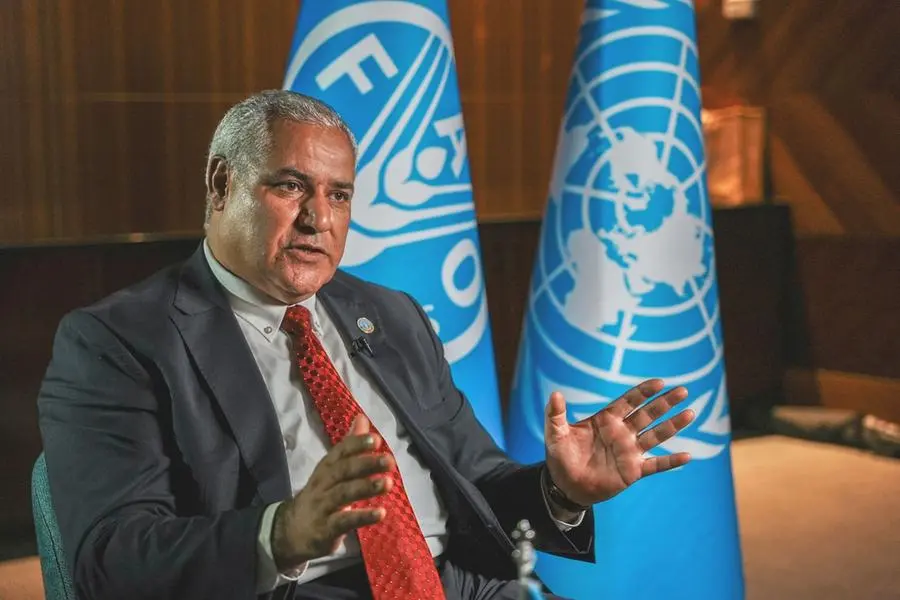PHOTO
ABU DHABI - Abdul Hakim Elwaer, FAO Assistant Director-General and Regional Representative for the Near East and North Africa, commended the UAE as a leading strategic partner in bolstering food security and promoting sustainable agricultural innovations amid escalating global and regional challenges.
Speaking to the Emirates News Agency (WAM) on the sidelines of his visit to the UAE, Elwaer highlighted the UAE's exemplary partnership with the FAO as a testament to its commitment to achieving the Sustainable Development Goals.
Elwaer emphasised the UAE's pivotal role in supporting FAO initiatives through financial contributions to food security projects and the provision of technical assistance. He underscored the increasing urgency for substantial investments, amounting to trillions of dollars, to address the growing gap and realise the Sustainable Development Goals, particularly in vulnerable regions.
FAO Assistant Director-General said that the UAE plays a prominent in supporting international efforts to combat hunger and enhance food security through strategic collaborations with the FAO.
Notable examples include the project to bolster food security in northeastern Nigeria, where the Mohammed bin Rashid Al Maktoum Global Initiatives are instrumental in improving food security for over 58,000 individuals.
In Liberia, the UAE contributes to the "Promoting increased resilience and sustainable income generation, food security and nutrition for rural women" project in collaboration with the FAO. This initiative targets 2,000 farmers across 24 farming groups in six counties through the introduction of mobile farm units equipped with cold storage and solar energy for irrigation.
He emphasised the FAO's efforts to raise awareness about the significance of food security through various programmes designed to enhance community understanding of food challenges and agricultural sustainability.
Elwaer underscored the potential of engaging youth in agricultural innovation and sustainability endeavours led by the UAE, such as developing vertical farms and implementing climate-smart agriculture practices to increase agricultural productivity and adapt to climate change.





















